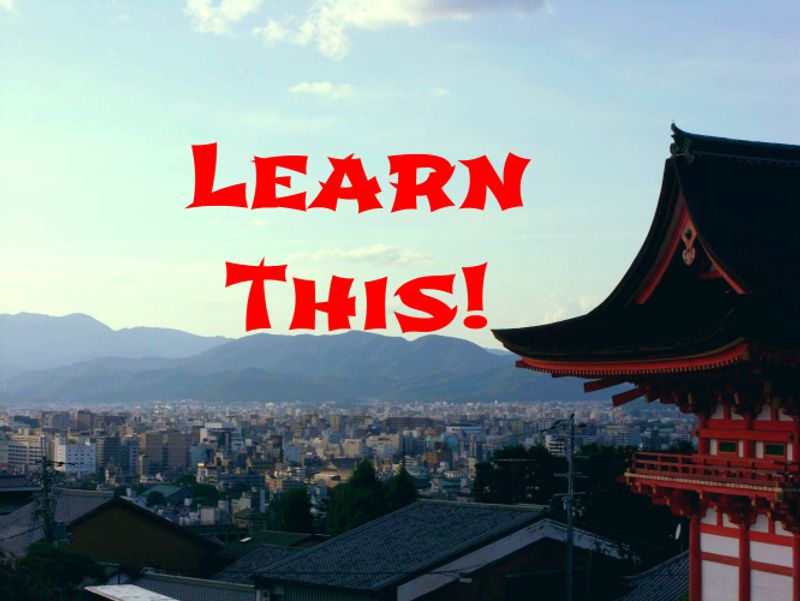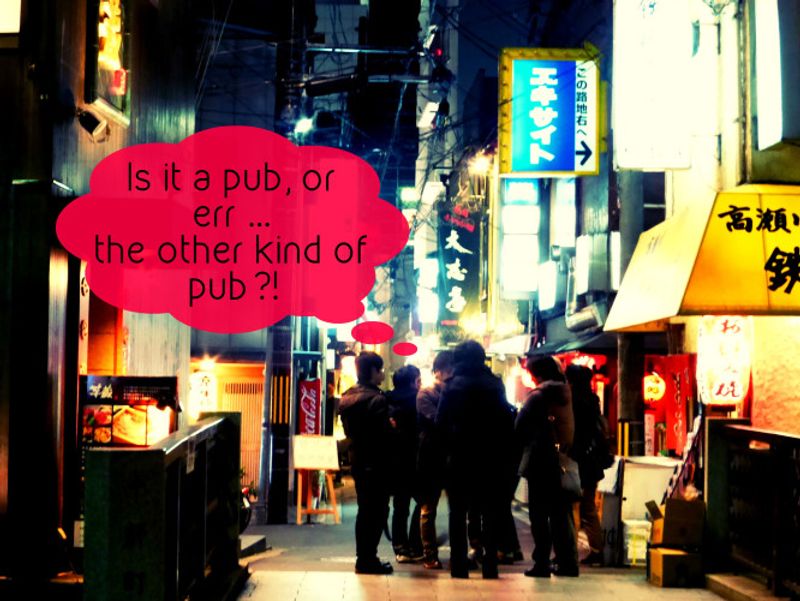May 29, 2015
Moving To Japan? ...

So you’ve made the decision to move to Japan. Or, perhaps you’re contemplating moving to Japan. Either way, congratulations. Japan is fantastic; beautiful people, beautiful country, mad nights out and a complex culture await. The country isn’t without its quirks though, and even the Japanese themselves occasionally have a hard time getting to grips with their nation's cultural peccadillos. Whilst overseas visitors/residents will be forgiven most faux pas, a bit of awareness will certainly make your transition to Japanese life smoother.
A lot has been documented in this field, and we’ll include a list of the most common ‘rules’ later. What we want to focus on initially are some potential ‘cultural’ banana skins that may not be so well known, as well as those that need to be stressed again, based on this writer’s personal experience. Also note that we’ve treated this topic with a certain amount of irreverence. If there’s anything you disagree with or you have suggestions of your own for people moving to Japan, we welcome your comments.
Come bearing gifts.
Probably well documented, this one. However, it’s important. If you're moving to Japan with a job lined up, a great way to get things off to a bad start would be not to bring even a simple gift from back home for your new colleagues.
Giving and receiving gifts comes naturally to the Japanese. From the luxury honeymoon to a day out in the country, a priority concern is shopping for gifts for friends, family and co-workers. Places of interest (even places of no interest) have plenty of shops that sell nothing but cheap(ish) gifts. Gifts that reflect little thought or personality. But that's not the point. In fact, nobody seems to know what the point is, it's just that everybody does it. And so should you! Any kind of snacks from home will do.

Don't hold open doors. (Well do, but don’t expect the favor to be returned).
An odd one this, in country whose populace is heartbreakingly polite. For some reason (maybe a history of using sliding doors) many Japanese are happy to let a swinging door slam right in the face of whoever may be following them. Even after years 'in country', it's a habit that jars. Still, in the face of underwhelming displays of gratitude and a distinct lack of people returning the favor, I continue to hold open doors for those behind me. I advise against it, as there's a danger of resentment. That said, fellas, in a land where women would traditionally make way for men to walk through doors, a proud, Ladies first!, as you hold open a door, will get things off on the right foot.
It’s a pub, but not as you might know it!
New country, new job. A little bit overwhelmed? What better way to unwind than with a pint at a pub? Japan has lots of them. The problem is they’re not the mahogany paneled, brass trimmed boozers one might be familiar with back home. Pubs (or ‘snacks’) are shoe-box sized saloons that are usually locals-only. Your first clue to the prospect of a frosty welcome is the lack of windows, and a Hobbit-sized door that never seems to be open. Inside, among furnishings that would have embarrassed the 1980's, middle-aged blokes chain smoke and sing karaoke while being fussed over by an elderly hostess and her heavy-chested assistant. Rocking up here without a local in tow will, at best, be met with a stony silence. Look out for ‘pubs’ paired with the words Irish or British, instead.
Temptation in Roppongi.
Staying with the theme of a night out, you’ll not be in Japan long before Tokyo’s Roppongi district enters the conversation. Chances are, if you’re still of the age where you want to go out and party, a night out here will be on your list of things to do in Japan. At night Roppongi morphs into a modern day wild-west of debauchery. The bars, clubs and strips joints cater to an international mob of expats, high rolling bankers, budget backpackers, itinerant teachers, and locals. It's here that your odds are highest for hooking up. Fellas though, be warned. There are plenty of booby traps (no pun intended). One of Roppongi's most misleading hands is dealt by an energetic crew of touts working for the local bars. The area's rich picking of hormonal Western lads looking for a night of wanton debauchery in the Far East gives them plenty of opportunity to drum up some business. The bar's full of hot girls tonight!. Guaranteed you'll be leaving with two Japanese ladies tonight!. It's all lies. More likely is that the bar will be empty save for a female 'plant' who'll get you thoroughly drunk (on your dollar) and leave you waiting for the first train home with a bad hangover, very few memories and even less money (if any at all)!
Roppongi is an epic night out, just use some savvy and follow the crowds.

Err, I was joking, actually (but not about the above)!
Sarcasm, irony, dry wit. These are all comedy mainstays for many of us. Over here though, they are likely to fall on deaf ears. In fact, your ironic boasts and pithy witticisms may well be taken literally, and trying to explain them away could be even more awkward. A boring case in point; not long after arriving here and knowing only a few words of Japanese, I took part in a meeting conducted entirely in the language. Coming out, Japanese colleagues asked me if it went OK. Yeah, it was great! I understood everything!. Instead of knowing giggles, I was adorned with praise for having learned Japanese so quickly. But hang on! Perhaps they were being sarcastic themselves?! Either way, save the sarcasm until people know you better.
Don’t Touch Me!
You’re new to the country. You’re going to meet, and be introduced to, a lot of new people. Now, I don’t know the traditional way to greet in your native land, be it nose rubbing, multiple cheek kisses, passionate hugs, or hip-hop inspired hand grabs. However, chances are, that kind of physical contact will likely freak people out over here. There’s a show on TV in Japan, where the production crew reunite little kids with a father they haven’t seen for years due to an overseas work post. Depending on where you’re from, you’ll be surprised by the gaping lack of hugs and kisses displayed upon reunification. They simply don’t do physical contact (although the presence of TV crew probably causes some restraint!).
Initially at least, go no further than a handshake.
And so it is to the classic cultural taboos. We’ll be brief as plenty of information is available. Instead we’ll categorize them according to probable reaction from the locals.
Likely to go unchecked but may draw stares, frowns or tuts!
- Eating whilst walking.
- Crossing roads on a red light (although this may draw the attention of police if they’re around).
- Opening/closing taxi doors (they’re automatic).
- Black tie/white shirt combo for a wedding (it’s for funerals).
- Blowing one’s nose into a handkerchief (tissues only, people)
- Not wearing a surgical mask when you visibly/audibly have a cold.
- Standing on the wrong side of an escalator.
- Being louder than everyone else on the trains.
Runs the risk of a physical/verbal intervention.
- Pouring drinks for yourself at a party/dinner (let others do it for you).
- Taking a sip of your first drink at a party/dinner before any ‘opening remarks’.
- Leaving chopsticks upright in food (it’s something only done at funerals).
- Passing food from chopstick to chopstick (again funerals only, although quite why you’d need/want to do this in everyday life is unknown to this writer).
Pretty much guaranteed some kind of intervention.
- Entering someone’s house without removing your shoes.
- Swimwear in a hot spring.
- Using soap in a communal bath (if anyone is around to see. Use the shower before hand.).
Again, if you’ve any cultural tips for people moving to Japan, please let us know below. If you’ve any questions, get on to our Q&A forum, where any questions are welcome.



0 Comments